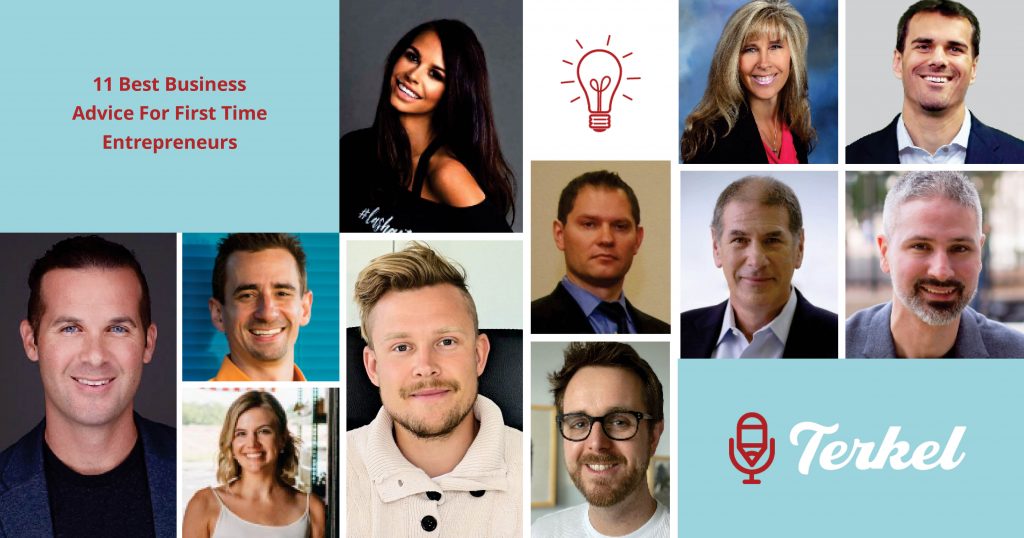
What is one innovative idea or tactic that an entrepreneur can use to grow their business?
To help small business owners brainstorm fresh business concepts, we asked CEOs and business leaders this question for their best innovative ideas for small businesses. From incorporating new technologies to conducting A/B experiments, there are several suggestions that may help you lead your industry in innovation for years to come.
Here are 10 innovative ideas from business leaders:
- Grow Your Online Presence
- Lead With Innovative Technology
- Turn to Agile Project Management
- Optimize Your Efforts
- Invest in SEO
- Incorporate Automation
- Double Check Site Loading Times
- Try Flexible Coworking Spaces
- Find Efficient Processes
- Conduct A/B Experiments
Grow Your Online Presence
Innovative growth tactics should allow you to expand your market share. Some small businesses might invest in new products and services, but other companies might seek to invest in new exciting offers and experiences. We provide small business loans to help companies grow and transform their businesses. So why not invest in your online presence. One of your most valuable assets is your online platforms since everything, and everyone is now online. You can use your online platforms to differentiate your brand by creating unique online experiences on your website or on social media.
Brianna Vaughan, LendThrive
Lead With Innovative Technology
Innovation is key to scaling your business. At iFax, we have revolutionized the way businesses and people send and receive fax messages. This simple, yet innovative app technology, enables better, more convenient ways to exchange information from business to business or person to person. You no longer have to spend money on expensive, outdated fax machines that take up so much space. Instead, you can work from the comfort of your own home to quickly and easily send a fax message from your phone within an app.
Eli Patashnik, iFax
Turn to Agile Project Management
Agile is a great innovative way of doing business. As a business grows, having agile teams make the adjustment much easier when serving an increased amount of clients or producing more products and services. By focusing on making constant improvements, your team can better collaborate with new changes and developments.
Debra Hildebrand, Hildebrand Solutions, LLC
Optimize Your Efforts
With things constantly changing and growing, we find it important to be able to withstand the growth. When you are ready to grow your business or when you think it’s time to take the next steps, keep in mind automating can be a good step forward. Find ways that can help you streamline your processes. Look into integrating Business Process Management software. These tools can help you optimize your efforts and give you time back to do more complex tasks and responsibilities.
Spiros Skolarikis, Comidor
Invest in SEO
There are so many logistics for entrepreneurs to worry about when starting a business. Coming up with some kind of digital marketing strategy is always top of mind as one of the many question marks that come when trying to get a new business off the ground. SEO is one of the best marketing tools a small business can invest in. Developing visibility on search engines will take time and effort, but there is never a direct charge for each impression or click, like there is with PPC (pay per click.) It can be a cost-effective strategy for businesses just starting out that will build trust and credibility with end-users.
Kayla Centeno, Markitors
Incorporate Automation
In order to maintain consistency with the quality of your products and services, some degree of automation is key. This minimizes the potential for human error while also enabling mass production at scale for growing businesses. Our patented D.Rain system, for example, is one such innovative technology that is used to block and anchor each panel and provide continuous moisture and drainage throughout.
Todd Sriro, Be.On Stone
Double Check Site Loading Time
An innovative way that companies can optimize their websites to improve growth and conversions is passing Core Web Vitals’ three key metrics that quantify page experience: LCP (Largest Contentful Paint), CLS (Cumulative Layout Shift), and FID (First Input Delay). One thing to do in order to pass LCP is analyzing how a page loads in a waterfall chart using Chrome Developer tools. Through this analysis, you are able to see which scripts delay loading times and which elements are non-essential. Another benefit of a waterfall analysis is that you can visually see which JS actions can be moved to the end of the waterfall without impacting render times.
Guy Katabi, Lightkey
Try Flexible Coworking Spaces
MAC6’s private office suite and co-manufacturing space are perfect for companies looking for a more innovative approach to work. At our facility we have a unique focus on health, wellness and productivity with our 24/7 mind & body strengthening fitness center, fit-trail parcourse, virtual and in-person meeting spaces and more. This is the perfect location to bring your team together for a more collaborative and innovative culture. Check out our enterprise office space solutions in Tempe, AZ.
Kyle McIntosh, MAC6
Find Efficient Processes
One innovative idea an entrepreneur can use to grow their business is to work smarter, not harder. It adds up to finding the most efficient way to get the job done. The best thing to do is to not only try to create the best product but also to establish the best process that works for you and can save you time and stress. The beauty of being an entrepreneur is that you have the freedom and the flexibility to create new processes and benefit from the results.
Ben Cook, Jr., Printed Kicks
Conduct A/B Experiments
A culture of innovation has been part of my DNA since my time at Google, and sustainable growth is one of my company’s core tenants. One example of how my company innovates is through using A/B experiments. Doing a small A/B experiment before fully implementing an idea ensures that our ideas will be received well even outside of our small bubble. Our launch and iterative philosophy have allowed us to embrace concepts that work and discard others as fast as possible for sustainable, data-driven growth.
Guna Kakulapati, CureSkin
Terkel creates community-driven content featuring expert insights. Sign up at terkel.io to answer questions and get published.















